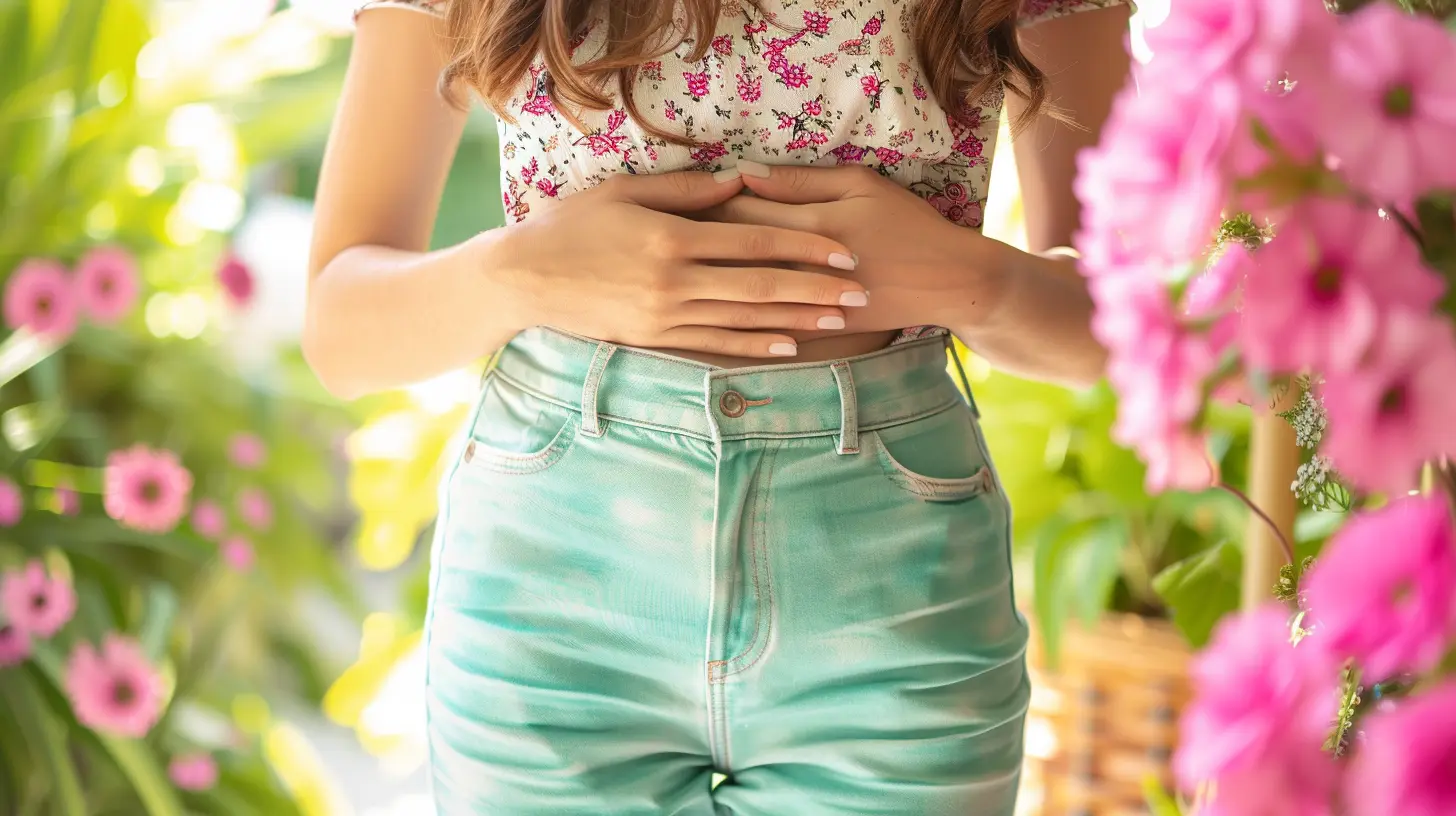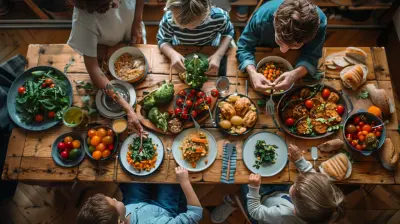Dealing with Postpartum Digestive Issues
30 September 2025
Let’s be honest: having a baby is a rollercoaster ride. Your body goes through some serious changes. And just when you thought the hard part—labor and delivery—was over, here comes the unexpected stuff. Yup, we're talking about postpartum digestive issues.
While everyone’s quick to talk about sore nipples, leaky boobs, and sleepless nights (and yes, those are real), not many moms bring up what’s going on down there in your gut. Whether it’s gas that could compete with a rocket ship, constipation that feels like a cruel joke, or bloating that makes you wonder if you’re pregnant again—digestive issues after birth are more common than most of us realize.

Why Does Digestion Get Messed Up After Having a Baby?
Think of your body like a snow globe. Pregnancy shook everything up—your organs literally moved to make room for a growing baby. After birth, things are trying to settle back into place, but it doesn’t happen overnight. Combine that with hormones going haywire and the trauma of delivery (c-section or vaginal), and you’ve got one confused digestive system.Here are a few reasons why you might be dealing with digestive drama:
- Hormonal changes: Estrogen and progesterone drop dramatically after birth, and these hormones affect digestion.
- Abdominal pressure: Your intestines are finding their old spot again—hello, awkward readjustment phase.
- Pain relief meds: Opioids given during or after delivery can slow down bowel movements.
- Dehydration: New moms often forget to drink enough water. Dehydration equals constipation.
- Diet changes: New moms sometimes skip meals or reach for quick snacks—cue the irregular eating habits.
Now that we’ve decoded the cause, let’s dive into solutions.
Common Postpartum Digestive Issues (And What You Can Do About Them)
1. Constipation: The Struggle Is Real
Let’s face it, even pre-baby pooping isn’t glamorous. But postpartum? It can be downright terrifying. You might be scared to push (especially if you had stitches), or you just can't go.What helps:
- Hydrate like it's your job: Aim for at least 8-10 glasses of water a day. Add some warm lemon water in the morning to get things going.- Fiber is your bestie: Whole grains, fruits, vegetables—load up on foods that bulk and soften stool.
- Don’t ignore the urge: Listen to your body. Waiting only worsens the problem.
- Move a little: Gentle walks help stimulate bowel movements (and fresh air does wonders for your mood).
Oh, and stool softeners? Yep, they’re safe and often recommended—especially if you’ve had tearing or surgical stitches.
2. Bloating and Gas: The Not-So-Cute Side Effect
So you’re not pregnant anymore, but your belly says otherwise. Bloating is a common postpartum frustration. The gas buildup can be painful—and let’s be real—super awkward.What helps:
- Eat small, frequent meals: Huge meals overload your already-sensitive gut.- Avoid gas-triggering foods: Beans, broccoli, carbonated drinks, and artificial sweeteners can be culprits.
- Slow down when eating: Gulping your food or drinking with straws can trap air and make bloating worse.
- Massage your belly: A gentle clockwise abdominal massage can move trapped gas out—literally.
3. Hemorrhoids: Yes, They’re Still Hanging Around
The pushing from delivery can cause these swollen veins around your anus, and—sigh—they often mess with your pooping routine.What helps:
- Sitz baths: Soak your bum in warm water daily to reduce swelling.- Witch hazel pads: They offer cooling relief and reduce inflammation.
- High-fiber diet & hydration: Again, two things you can’t skip.
- Don’t strain: Let it come naturally, or use a stool (like a Squatty Potty) to help your posture on the toilet.
4. Loose Stools or Diarrhea
While constipation is more common, some moms swing in the opposite direction with diarrhea. It could be your body flushing out excess hormones, changes in diet, or even a reaction to antibiotics.What helps:
- Stay hydrated: Electrolyte drinks like coconut water help balance your system.- Watch your diet: Avoid spicy, greasy, or high-fat foods until things normalize.
- Probiotics: These are friendly bacteria that can help reset your gut. Find them in yogurt or supplements.
If the diarrhea lasts more than a few days, check in with your doctor—it might be an infection or food intolerance.
Your Diet Plays a Bigger Role Than You Think
Your gut's health depends a lot on what you feed it. Especially after pregnancy, your body craves nutrients that support healing, hormone balancing, and yes—digestion.Here's a little cheat sheet for a gut-friendly postpartum diet:
- Lean proteins: Chicken, eggs, fish—great for tissue repair and energy.
- Whole grains: Brown rice, oats, quinoa—loaded with fiber to keep things moving.
- Fermented foods: Think yogurt, kefir, kimchi—natural probiotics that love your gut.
- Leafy greens: Packed with magnesium, which helps relax your digestive muscles.
- Healthy fats: Avocados, nuts, olive oil—and they help with vitamin absorption too.
Avoid crash diets or skipping meals just because you’re eager to "bounce back"—your gut needs time and fuel to heal.
When You’re Breastfeeding—Things to Consider
Breastfeeding uses up an insane amount of calories. Between milk production and sleepless nights, your body is burning through fuel. That means you need to eat more, not less—and your digestion might get out of sync if you're not feeding yourself properly.Also, some babies are sensitive to certain foods in your diet. If your little one seems fussy or gassy after you eat dairy, caffeine, or spicy foods, your gut might be reacting too. Keep a food log to spot patterns.
Emotional Stress & Digestion: Yes, They’re Connected
Remember those butterflies you feel when you're nervous? That’s your gut reacting to your brain. The gut-brain connection is very real.Postpartum anxiety, depression, or simple overwhelm can mess with your digestion. Stress hormones like cortisol can slow down or speed up your gut. Ever notice how your stomach clenches when you’re upset? Or how you just can’t go when you’re anxious?
What helps:
- Deep breathing: Try box breathing—a 4x4x4x4 rhythm to calm your nervous system.- Meditation or journaling: Just 10 minutes a day can clear mental clutter.
- Talk it out: Whether it’s a therapist, partner, or mom friend, don't bottle up your feelings.
Probiotics: Can They Really Help?
Short answer: Yes. Postpartum, your gut microbiome (the balance of bacteria in your stomach) might be off due to antibiotics, hormone fluctuations, or dietary havoc. Probiotics replenish the good guys and can improve digestion, reduce bloating, and even support your immune system.You can take probiotics as supplements or get them naturally through:
- Greek yogurt
- Kefir
- Sauerkraut
- Miso
- Tempeh
- Kombucha (in moderation, especially if you’re breastfeeding)
When Should You Call the Doctor?
Most postpartum poop problems resolve on their own over weeks or a couple of months. But sometimes, they're a red flag.Call your healthcare provider if:
- You haven’t had a bowel movement for more than 4 days post-delivery.
- You notice blood in your stool.
- Hemorrhoids are too painful or bleeding frequently.
- Diarrhea lasts more than 72 hours.
- Bloating is severe or accompanied by vomiting.
- You feel constant abdominal pain that doesn’t seem normal.
Your body just did some superhero-level work. Don’t hesitate to seek support if things feel off.
Final Thoughts
Ladies, let's normalize talking about what happens after childbirth. Digestive issues are not just annoying—they're real, common, and treatable. You’re navigating sleepless nights, spit-up in your hair, and now your gut seems to have its own agenda. Give yourself grace. Be patient with the process.And remember—poop talk doesn’t have to be taboo. The more we share, the easier it is for new moms to feel seen, supported, and not alone.
You’ve got this.
all images in this post were generated using AI tools
Category:
Postpartum RecoveryAuthor:

Kelly Snow
Discussion
rate this article
1 comments
Nicole Moore
Such an eye-opener!
October 4, 2025 at 3:20 AM

Kelly Snow
Thank you! I'm glad you found it insightful!


